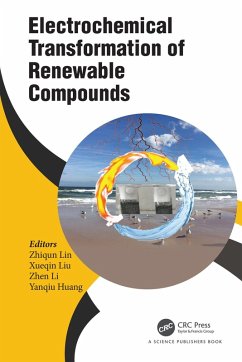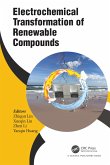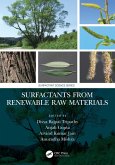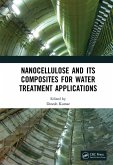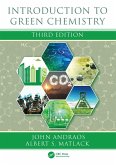Electrochemical Transformation of Renewable Compounds (eBook, ePUB)
Redaktion: Lin, Zhiqun; Huang, Yanqiu; Li, Zhen; Liu, Xueqin
61,95 €
61,95 €
inkl. MwSt.
Sofort per Download lieferbar

31 °P sammeln
61,95 €
Als Download kaufen

61,95 €
inkl. MwSt.
Sofort per Download lieferbar

31 °P sammeln
Jetzt verschenken
Alle Infos zum eBook verschenken
61,95 €
inkl. MwSt.
Sofort per Download lieferbar
Alle Infos zum eBook verschenken

31 °P sammeln
Electrochemical Transformation of Renewable Compounds (eBook, ePUB)
Redaktion: Lin, Zhiqun; Huang, Yanqiu; Li, Zhen; Liu, Xueqin
- Format: ePub
- Merkliste
- Auf die Merkliste
- Bewerten Bewerten
- Teilen
- Produkt teilen
- Produkterinnerung
- Produkterinnerung

Bitte loggen Sie sich zunächst in Ihr Kundenkonto ein oder registrieren Sie sich bei
bücher.de, um das eBook-Abo tolino select nutzen zu können.
Hier können Sie sich einloggen
Hier können Sie sich einloggen
Sie sind bereits eingeloggt. Klicken Sie auf 2. tolino select Abo, um fortzufahren.

Bitte loggen Sie sich zunächst in Ihr Kundenkonto ein oder registrieren Sie sich bei bücher.de, um das eBook-Abo tolino select nutzen zu können.
Electrochemical conversion process can be used to generate power, store energy and synthesize chemicals, which plays a key role in the development of sustainable energy resources.
- Geräte: eReader
- mit Kopierschutz
- eBook Hilfe
Andere Kunden interessierten sich auch für
![Electrochemical Transformation of Renewable Compounds (eBook, PDF) Electrochemical Transformation of Renewable Compounds (eBook, PDF)]() Electrochemical Transformation of Renewable Compounds (eBook, PDF)61,95 €
Electrochemical Transformation of Renewable Compounds (eBook, PDF)61,95 €![Environmental Chemistry (eBook, ePUB) Environmental Chemistry (eBook, ePUB)]() Stanley E. ManahanEnvironmental Chemistry (eBook, ePUB)46,95 €
Stanley E. ManahanEnvironmental Chemistry (eBook, ePUB)46,95 €![Surfactants from Renewable Raw Materials (eBook, ePUB) Surfactants from Renewable Raw Materials (eBook, ePUB)]() Surfactants from Renewable Raw Materials (eBook, ePUB)46,95 €
Surfactants from Renewable Raw Materials (eBook, ePUB)46,95 €![Nanocellulose and Its Composites for Water Treatment Applications (eBook, ePUB) Nanocellulose and Its Composites for Water Treatment Applications (eBook, ePUB)]() Nanocellulose and Its Composites for Water Treatment Applications (eBook, ePUB)46,95 €
Nanocellulose and Its Composites for Water Treatment Applications (eBook, ePUB)46,95 €![Introduction to Green Chemistry (eBook, ePUB) Introduction to Green Chemistry (eBook, ePUB)]() John AndraosIntroduction to Green Chemistry (eBook, ePUB)147,95 €
John AndraosIntroduction to Green Chemistry (eBook, ePUB)147,95 €![Environmental Chemistry (eBook, PDF) Environmental Chemistry (eBook, PDF)]() Stanley E. ManahanEnvironmental Chemistry (eBook, PDF)46,95 €
Stanley E. ManahanEnvironmental Chemistry (eBook, PDF)46,95 €![Plasmonic Nanosensors for Detection of Aqueous Toxic Metals (eBook, ePUB) Plasmonic Nanosensors for Detection of Aqueous Toxic Metals (eBook, ePUB)]() Dinesh KumarPlasmonic Nanosensors for Detection of Aqueous Toxic Metals (eBook, ePUB)46,95 €
Dinesh KumarPlasmonic Nanosensors for Detection of Aqueous Toxic Metals (eBook, ePUB)46,95 €-
-
-
Electrochemical conversion process can be used to generate power, store energy and synthesize chemicals, which plays a key role in the development of sustainable energy resources.
Hinweis: Dieser Artikel kann nur an eine deutsche Lieferadresse ausgeliefert werden.
Dieser Download kann aus rechtlichen Gründen nur mit Rechnungsadresse in A, B, BG, CY, CZ, D, DK, EW, E, FIN, F, GR, HR, H, IRL, I, LT, L, LR, M, NL, PL, P, R, S, SLO, SK ausgeliefert werden.
Hinweis: Dieser Artikel kann nur an eine deutsche Lieferadresse ausgeliefert werden.
Produktdetails
- Produktdetails
- Verlag: Taylor & Francis eBooks
- Seitenzahl: 280
- Erscheinungstermin: 23. Dezember 2022
- Englisch
- ISBN-13: 9781000818031
- Artikelnr.: 66253658
- Verlag: Taylor & Francis eBooks
- Seitenzahl: 280
- Erscheinungstermin: 23. Dezember 2022
- Englisch
- ISBN-13: 9781000818031
- Artikelnr.: 66253658
- Herstellerkennzeichnung Die Herstellerinformationen sind derzeit nicht verfügbar.
Zhiqun Lin is a Professor in the School of Materials Science and Engineering at the Georgia Institute of Technology. He received his Ph.D. in Polymer Science and Engineering from the University of Massachusetts, Amherst in 2002. His research interests include perovskite solar cells, polymer solar cells, dye-sensitized solar cells, photocatalysis, hydrogen generation, lithium ion batteries, quantum dots (rods), conjugated polymers, block copolymers, polymer blends, hierarchical structure formation and assembly, surface and interfacial properties, multifunctional nanocrystals, and Janus nanostructures. Xueqin Liu is an Associate Professor in the Faculty of Materials Science and Chemistry, China University of Geosciences (Wuhan). He received his Ph.D. in Materials Science and Engineering from China University of Geosciences (Wuhan) in 2016. He was selected to be a community board member for Nanoscale Horizons. His research interests include the structure modification of catalytic materials and their application in solar energy conversion and environment remediation, such as hydrogen generation, CO2 reduction and N2 reduction. Zhen Li is a Professor in the Faculty of Materials Science and Chemistry, China University of Geosciences (Wuhan). She received her Ph.D. in mineral-petrological materials science from China University of Geosciences (Wuhan) in 2004. Her research is devoted to the development and application of graphite materials, the growth and application of multifunctional nanocrystals, the comprehensive utilization of non-metallic minerals and the preparation of functional nanocomposites. She has published more than 100 peer reviewed journal articles. Yanqiu Huang is a Professor in the Faculty of Materials Science and Chemistry, China University of Geosciences (Wuhan). He received her PhD degree in Microelectronics and Solid State Electronics from Huazhong University of Science and Technology in 2002. His research interests include piezoelectric and ferroelectric materials as well as graphite and graphite based composite electrode materials for the lithium-ion battery. He has published more than 60 peer reviewed journal articles.
1. Electrochemical Transformation of Renewable Compounds: A Perspective 2.
Bifunctional Electrocatalysts for Overall Water Splitting 3. Metal-organic
Frameworks Derived Electrocatalysts for Energy Conversion Reaction 4.
Electrocatalysts for Oxidation of Methanol and Urea 5. Carbon
Materials-based Electrocatalysts for Oxygen Reduction Reaction 6.
Metal-Based Heterogeneous Electrocatalysts for Carbon Dioxide Reduction 7.
Earth Abundant Electrocatalysts for Oxygen Evolution 8. Self-Support
Nanoarrays as Electrocatalysts for Energy Conversion Applications 9.
Single-Metal-Atom Electrocatalysts for Clean Energy Conversion
Bifunctional Electrocatalysts for Overall Water Splitting 3. Metal-organic
Frameworks Derived Electrocatalysts for Energy Conversion Reaction 4.
Electrocatalysts for Oxidation of Methanol and Urea 5. Carbon
Materials-based Electrocatalysts for Oxygen Reduction Reaction 6.
Metal-Based Heterogeneous Electrocatalysts for Carbon Dioxide Reduction 7.
Earth Abundant Electrocatalysts for Oxygen Evolution 8. Self-Support
Nanoarrays as Electrocatalysts for Energy Conversion Applications 9.
Single-Metal-Atom Electrocatalysts for Clean Energy Conversion
1. Electrochemical Transformation of Renewable Compounds: A Perspective 2.
Bifunctional Electrocatalysts for Overall Water Splitting 3. Metal-organic
Frameworks Derived Electrocatalysts for Energy Conversion Reaction 4.
Electrocatalysts for Oxidation of Methanol and Urea 5. Carbon
Materials-based Electrocatalysts for Oxygen Reduction Reaction 6.
Metal-Based Heterogeneous Electrocatalysts for Carbon Dioxide Reduction 7.
Earth Abundant Electrocatalysts for Oxygen Evolution 8. Self-Support
Nanoarrays as Electrocatalysts for Energy Conversion Applications 9.
Single-Metal-Atom Electrocatalysts for Clean Energy Conversion
Bifunctional Electrocatalysts for Overall Water Splitting 3. Metal-organic
Frameworks Derived Electrocatalysts for Energy Conversion Reaction 4.
Electrocatalysts for Oxidation of Methanol and Urea 5. Carbon
Materials-based Electrocatalysts for Oxygen Reduction Reaction 6.
Metal-Based Heterogeneous Electrocatalysts for Carbon Dioxide Reduction 7.
Earth Abundant Electrocatalysts for Oxygen Evolution 8. Self-Support
Nanoarrays as Electrocatalysts for Energy Conversion Applications 9.
Single-Metal-Atom Electrocatalysts for Clean Energy Conversion
